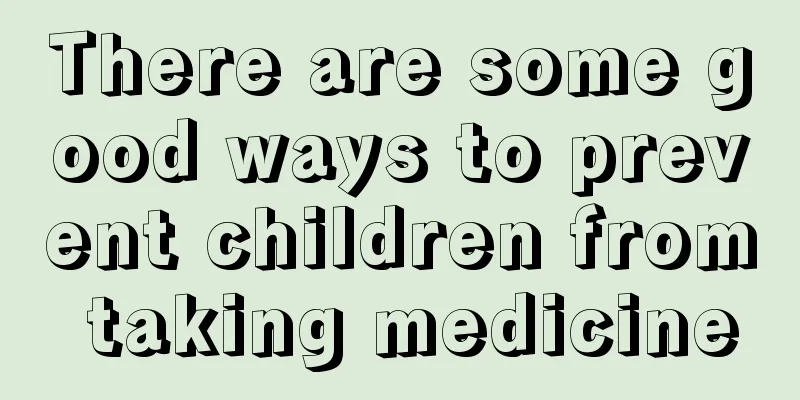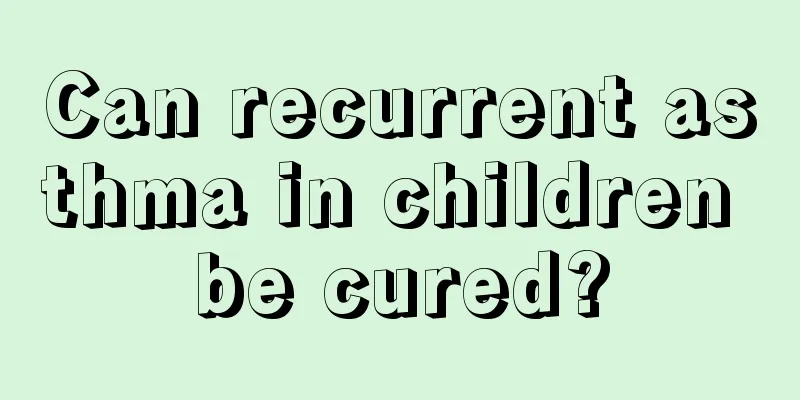There are some good ways to prevent children from taking medicine

|
The biggest headache for young parents is when their children are sick. It is extremely difficult to get them to take medicine. Many people know that no matter how hard you try, no matter how you persuade them, no matter how you coerce or bribe them, the children just won't take the medicine. What can you do? So is there any good way to deal with children who don't want to take medicine? What should you pay attention to when giving medicine to children? Let the editor tell you one by one. 1. Rewards Taking medicine is a painful thing, especially those that taste bad. Giving small rewards appropriately, such as giving a piece of candy after taking the medicine to remove the unpleasant smell of the remaining medicine, will increase the child's cooperation. 2. Mini Games Children like to play role-playing games. Children can play the role of doctors feeding medicine to small animals or mothers feeding medicine to babies. This can make feeding medicine itself more interesting and help children take medicine more easily. 3. Feed your baby drinks first Prepare two small bowls, one for juice or drink and the other for medicine. Give your baby a drink first, then quickly feed him/her the medicine solution when he/she is not paying attention, and then give him/her a spoonful of drink. 4. Ask the doctor to prescribe medicine that is not bitter This may sound like an unreasonable request, but now there are many medicines specially developed for children. For example, many granules for treating children's colds come with various fruit flavors, and children taste sweet and fragrant when drinking them, just like drinking juice. 5. Give your child proper training Children don't take medicine because they are not used to bitter things. Therefore, it is necessary to train their taste buds from an early age and let them eat some bitter melon juice and other foods appropriately. This will help them adapt to the bitter taste. What should you pay attention to when giving medicine to children? 1. If your baby is seriously ill, you must take him to the hospital to see a doctor instead of deciding what medicine to give him based on your own judgment. Doing so will seriously threaten the baby's safety and health, and in severe cases may endanger his life. 2. When giving medicine to your baby, you must not act on your own or decide the dosage casually. You must strictly follow the medicine instructions or the medicine usage list prescribed by the doctor to feed the medicine, otherwise it will cause unpredictable harm. 3. If the baby does not take the medicine, the disease cannot be cured, but this does not mean that you can force-feed the baby the medicine. Doing so will make the baby feel resistant and easily cause vomiting and other discomfort reactions. The above is about: "What to do if the baby refuses to take medicine? Recommend a few tips", I hope it will be helpful to you. |
<<: What are the tips for constipation in 3-year-old children?
>>: What should I do if my child coughs badly?
Recommend
What to do if a child accidentally swallows an adult's medicine
The human body often has many problems, and not o...
The efficacy of blood sugar syrup for children
Children's resistance is often not as strong ...
How many months does it take for a child to speak?
In fact, every child learns to speak at a differe...
What to do if your child has a stuffy nose
Many parents are worried about children's stu...
The dangers of little girl's leg-clip syndrome
Parents always find that their little girls have ...
How to treat rhinitis in a three-year-old child
For children, rhinitis is very uncomfortable. Of ...
What to do if your baby is uncomfortable with teething
When babies are teething, they will drool and the...
How to treat children's constant nosebleeds
A child's body gradually improves during the ...
How to regulate the frequency of bowel movements of a 10-day-old newborn?
Newborns have just come into this world and are s...
Children's platelet count is 460
Platelets are small pieces of cytoplasm and are a...
What is the most nutritious breakfast for children?
The growth of children is something that parents ...
How to rule out giant intestinal congestion in babies
Many people don’t know how to eliminate giant ent...
What should I do if my child’s front teeth fall out? Parents can do this
Children often fall, so it is common for their fr...
What to do if your child has phlegm in his throat
Whenever the seasons change, the temperature is u...
What is the reason why children feel chest tightness and shortness of breath?
If there is a child at home, his physical conditi...









